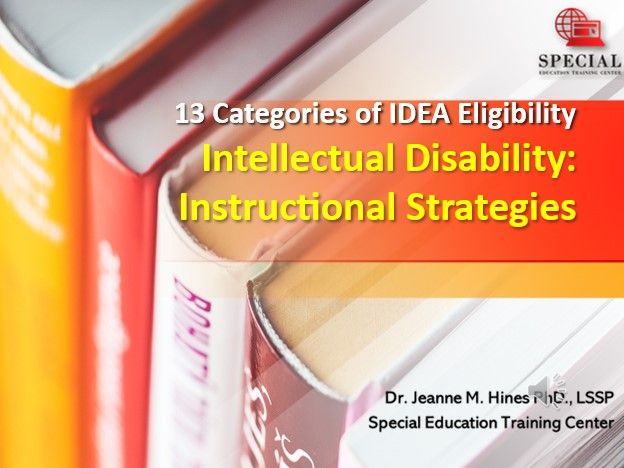Intellectual Disability: Instructional Strategies 13 Categories of IDEA Eligibility,
The eLearning course, “Intellectual Disability: Instructional Strategies 13 Categories of IDEA Eligibility, “will focus on the 13 eligibilities for special education services, and the Individuals with Disabilities Education Act (IDEA). Intellectual disability (ID) refers to a condition characterized by limitations in cognitive abilities and essential skills, including communication, social interaction, and self-care. These challenges may lead to a child developing and learning at a slower or atypical pace compared to their peers. Intellectual disability can arise at any point before the age of 18, including during prenatal development. It is recognized as the most prevalent form of developmental disability. The American Association of Intellectual and Developmental Disabilities outlines three criteria for diagnosing intellectual disability: an IQ score below 70-75, significant limitations in two or more adaptive areas necessary for community living, such as communication and self-care, and the onset of these conditions prior to the age of 18.
LEARNING OUTCOMES
After the online course, eLearners should
be able to..,
Discuss Individuals with Disabilities Education Act (IDEA)
Identify the 13 categories of IDEA eligibility
Describe the purpose of Part B of IDEA
Evaluate Part C of IDEA
Define Intellectual Disability (ID)
Outline some of the common causes of an ID
Explain common instructional strategies
-
68 learners
Enrolled -
4 hours
Video duration -
27 hours
Course duration -
4 Ebooks
Free of charge

